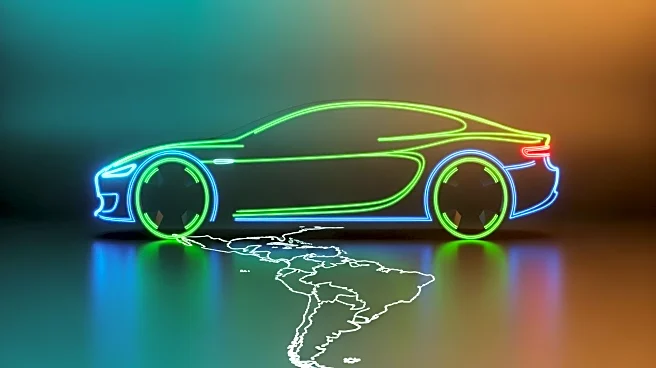What's Happening?
Chinese automaker BYD is spearheading the electric vehicle market expansion in Central and South America, leveraging low tariff barriers to increase exports. In Brazil, BYD has begun assembling EVs at a former Ford factory, while Great Wall Motors has launched
production at a repurposed Mercedes-Benz facility. Uruguay has seen a significant rise in EV sales, aided by tax exemptions and high gasoline prices. However, tensions arise as Brazilian industry groups criticize China's approach, leading to plans for re-imposing import duties by next year.
Why It's Important?
The expansion of Chinese EVs in South America highlights the region's growing market potential and the strategic moves by Chinese automakers to capitalize on tariff structures. This development could reshape the automotive landscape, challenging traditional manufacturers and influencing local economies. The tariff tensions in Brazil reflect broader concerns about foreign investment and job creation, underscoring the complexities of international trade and economic policy. The situation may prompt other countries to reassess their trade policies and investment strategies in the automotive sector.
What's Next?
Brazil's decision to re-impose import duties on EVs could impact the growth trajectory of Chinese automakers in the region. As local production ramps up, companies like BYD and Great Wall Motors may focus on expanding their manufacturing capabilities to mitigate tariff impacts. The evolving trade dynamics may lead to new partnerships and investments, as countries seek to balance economic growth with domestic industry protection. The ongoing developments will likely influence future trade agreements and regional economic policies.














